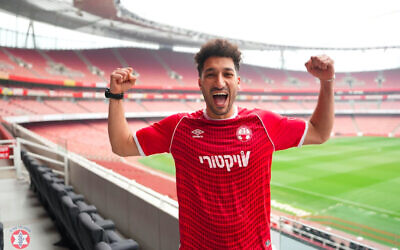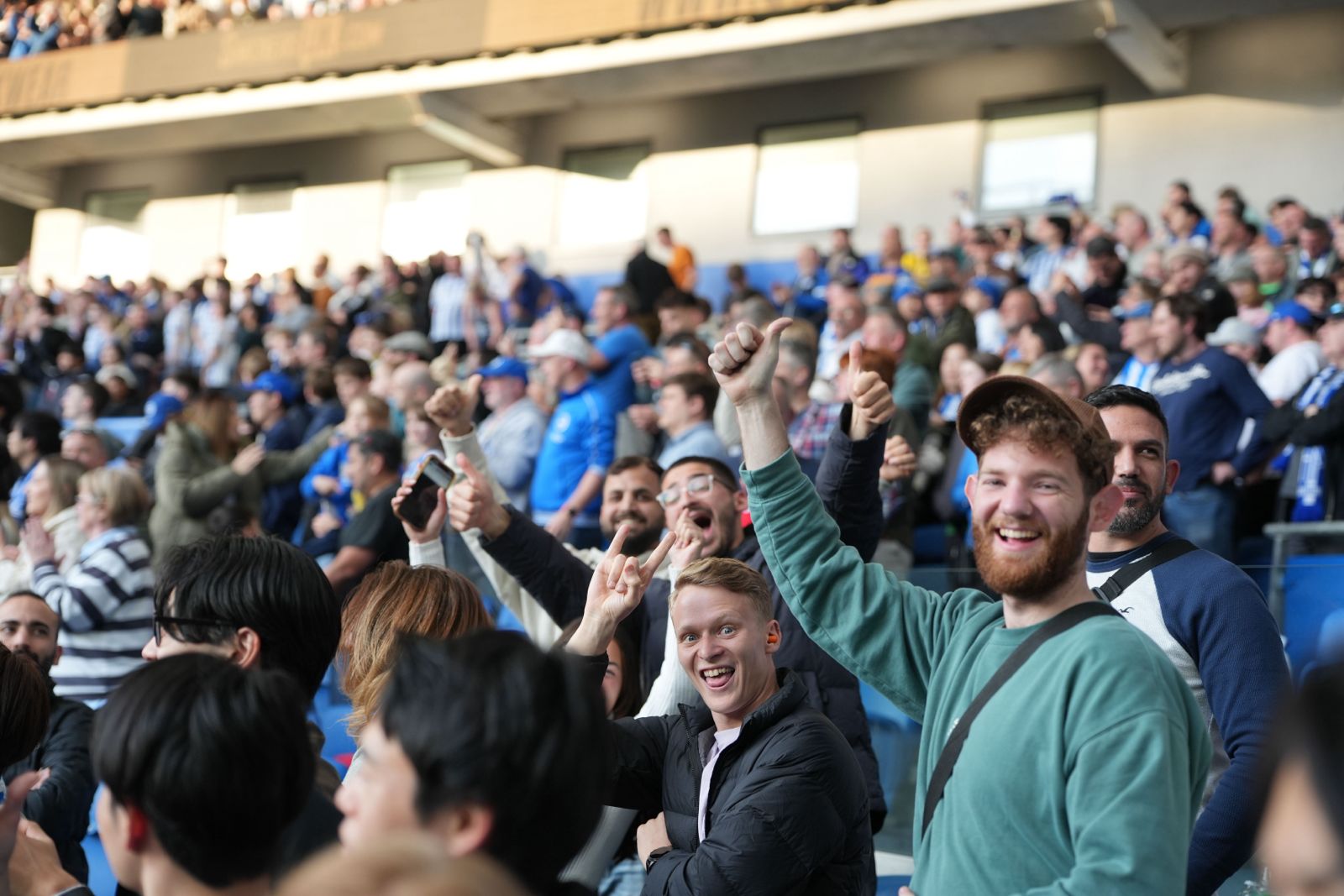Think of it as their ‘Israeli way’. After spending a week in the company of these veterans in March, I can see why this group don’t want your tears.
From touchdown at Heathrow, hosts Beit Halochem treated the delegate like royalty, aptly kicking off the fun-filled week with a sightseeing trip around London, a first for many of the 32 veterans and staff, including protection by SQR Security Solutions. The warm weather prompted a picnic lunch in St James’s Park, where office workers were playing rugby. Spencer Gelding, Chief Executive of Beit Halochem said it was a trip highlight: “One of our guys in a wheelchair went over to ask for a game and within minutes they were all playing rugby together.”
Beit Halochem has four state-of-the-art rehabilitation sites in Tel Aviv, Haifa, Jerusalem and Beer Sheva, supporting 62,500 veterans and their families, including 11,500 since October 7. The new centre at Ashdod opening this month cannot be completed quickly enough, allowing, as it does, members to lead as normal a life as possible through mental and physical rehabilitation, many going on to achieve Paralympic success in tennis, basketball and swimming. “Of course, every single veteran is deserving of such a fantastic week in London,” Spencer explained, “But spaces were given across all of our centres for those most in need of a respite trip.”
After a day touring historic London and some lunch in Covent Garden, it was time for Shabbat wind down, where groups of veterans were hosted by families for Friday night dinner. Softly spoken veteran Nov (Tel Aviv centre) who served in the Home Front Command’s Rescue and Evacuation Brigade said: “The atmosphere and bonding with a family I never met – wow. They were so respectful, not asking too many questions, just when we felt ready to talk.”
Roei Rozenberg, right, who competed for Israel at the Beijng Paralympic Games
Nov was injured by a stone thrown at her by a Palestinian during a protest in 2014 and left unable to speak or eat. After several months of rehabilitation, she returned to her unit but had to give up due to severe PTSD and Tel Aviv Beit Halochem is about the only place she leaves her home for, to play wheelchair basketball. Joining the London delegate was a huge deal. “I’ve made new friends from other centres and did some shopping with my sister Shahaf who lives in London. Primark of course and Sephora which we don’t have in Israel, so I stocked up!”
Spencer told me, “When someone gets injured and loses that ability to fight, they lose their community, their unit. Beit Halochem puts them into a new community with opportunities to meet like-minded individuals and form lasting bonds.”

Mishel Rukavitsin and fiancé Rinat Kasymov at the London Eye
Veterans also visited JCoSS, where Sergeant Major Mishel Rukavitsin, 24, spoke emotionally to Year 12 students. “I was an intelligence systems technician and on October 6 at Kissufim base we were fixing a camera. I woke on the 7th from the alarm and ran to the (doorless) shelter. The shooting got closer, the first grenade was thrown in and terrorists shot me seven times.”

Basketball at the Tel Aviv centre
Left for dead for 14 hours she was miraculously found and taken to hospital, her body paralysed in a coma for three months. “My boyfriend Rinat came every day to hold my hand and played me songs I hate, to hope that I woke up.” She laughs but is serious. “When I finally wake, I didn’t remember anything. I did a year of rehab, my speech came back and Rinat proposed to me. I’m still in rehab, but I can go home each day and I’m positive that for my wedding I want to go on my two legs. I will be ok. It will be ok.” she emphasises.

Tomer Shmuel at Arsenal’s Emirates Stadium
Spencer says, “Since we started the charity, we’ve brought veterans over. Why? Because not everyone can get to the centres in Israel. And also because you understand who they are and who we are when you hear firsthand. It shows that disability is not a deterrent or negative and that people go on to achieve the most incredible things.”
I overheard some visibly moved students trying to comprehend that many veterans are just a few years older than them. “This was definitely a highlight of my time at JCoSS,” said pupil Bessie Teper, “I was so grateful to be there to hear their stories, especially Mishal – she was so beautiful, so strong – her story really stuck with me. I have family in Israel and hope to visit one of the centres when I’m there next.”

Beer Sheva centre basketball
As the pupils filed out, veterans handed out Beit Halochem ‘Stronger Together’ dog tags, plus a friendly warning from veteran Omri Rozenblit (Tel Aviv centre) that he would ‘whoop their tuchus’ (roughly translated) at wheelchair basketball next time they come to Israel. After a coastal day at the football watching Brighton whoop Fulham’s tuchus, I sat with Omri when the delegate visited Fairgame in Canary Wharf. I was concerned he would be uncomfortable sat at a high table, having lost his left leg from an explosion in a booby-trapped house in Khan Younis. But his only concern was getting an espresso and between sips he recounted his story like it was a Hollywood movie.

Omri Rezenblit
“I was a Team Commander in Gaza for 21 days. We entered this three-storey house and suddenly… boom! A huge IED was blown up and I lost consciousness, buried under the rubble. I can’t remember ‘nothing’.” (Omri may have used another unprintable word.) “Forces came and I managed to move my hand – I couldn’t speak because my face was badly burned. A medic ran over and I pulled him close, whispering, ‘I can’t feel my leg – you need to tourniquet.’ In this moment, I am still a Commander, giving orders. My soldiers, my brothers – they dropped their helmets and weapons, digging with their bare hands to try and move the pillar off me. After 20 minutes I was on a stretcher. I lost 100 percent of my blood and kept repeating to the doctor on the chopper, ‘keep me awake – keep me awake’. After eight hours lifesaving surgery I lost my left leg, but they managed to save my right. I feel lucky. Others would feel sorry for me, but Beit Halochem helped me. Wozi, a veteran paralysed waist down and in a wheelchair, visited me. And he’s looking at me and counting saying, ‘You have three limbs. You can play basketball.’ And I’m like, no way, I’m in a wheelchair. But he makes me try and I’m so frustrated and angry because I just can’t control my body that I used to know. Wozi won’t let me quit, saying, ‘I am wishing so much to have my left leg back to be able to play.’ Wozi is my good friend now and Beit Halochem is the most important organisation for my future. I’m going to learn to run and climb mountains.”

Elisha Medan was critically injured while fighting in Gaza
An Arsenal stadium tour and lunch at Tony Page’s new restaurant – Beit Halochem were making true north west Londoners out of the veterans, whose week also included the theatre to see The Lion King, a Shoreditch Street Art Tour and a bold move of offering a group of Israelis lunch at Hummus Bar. (Clean plates all round.)

A the brighten vs Fulham match
The final farewell was a fitting celebration at function venue The Sorting Office, where veterans mingled and told their stories to a packed house of guests, many with a personal connection. Londoner Rafi Saville had the joy of hanging out with his relative, veteran Matan Saville (Jerusalem centre), who was injured during an attack on the Shifa hospital and sustained a head injury, nerve damage and post-trauma from his time in Gaza, but through rehab, aspires to study medicine. Veteran Uriel Daniel spoke of his time in Jabaliya, leaving him with shrapnel in his face and eyes and a crushed right hand. He said poignantly of the war against Hamas, “I won. They didn’t manage to kill me.”
As the music started playing – Omer Adam’s Tel Aviv (naturally) – the veterans commandeered the dancefloor, rocking out in wheelchairs and jubilantly punching the air with their crutches. As the saying goes, dance like nobody is watching, but best believe the world is watching their zest for life and they were all dancing again.
Throughout the week generous donors gave up their time and facilities, including Elliot Spencer (DJ), Sam Kingsley (Sorting Office) and Richard Hilton (Fairgame). Through Beit Halochem’s generous foundation sponsors the Charles Wolfson charitable trust and the Rachel Charitable trust, plus anonymous sponsors, future trips like this one can be planned.